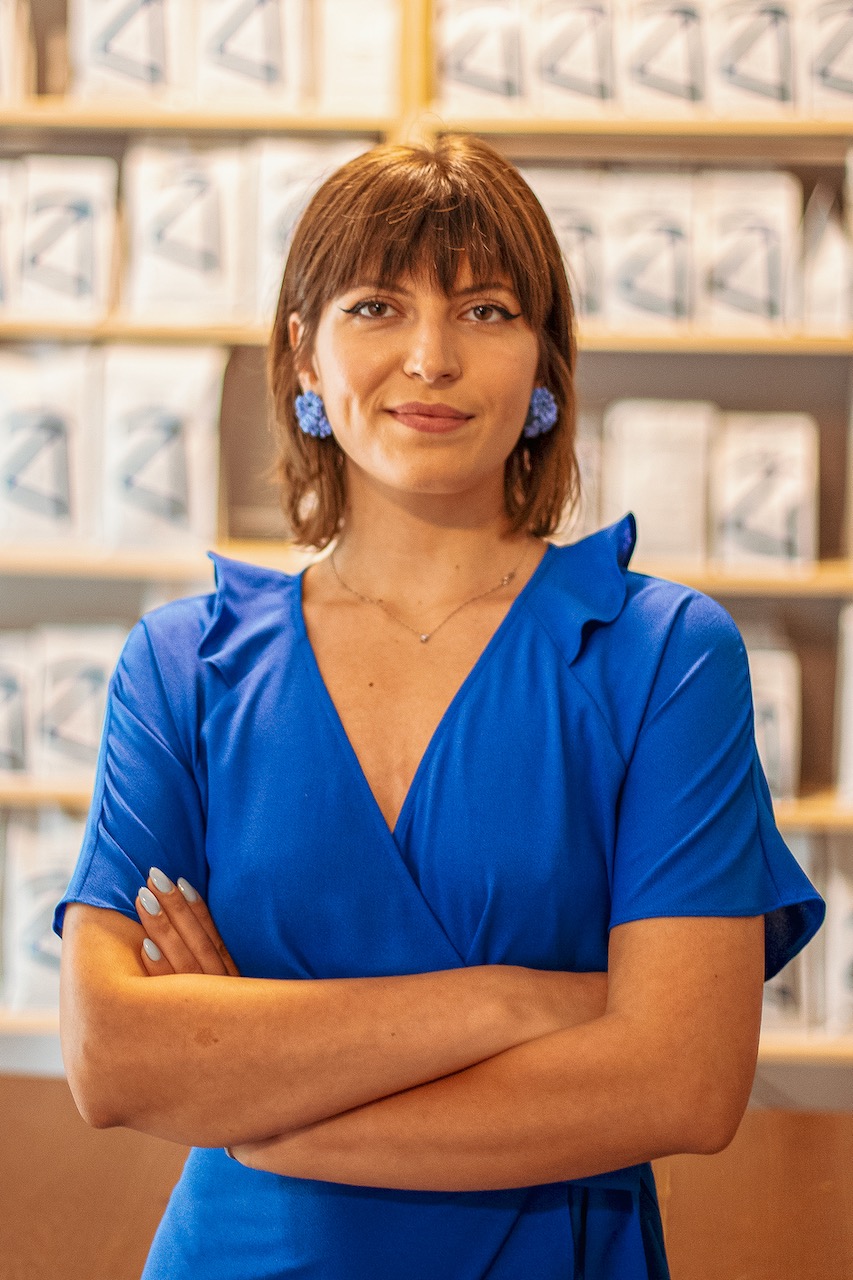
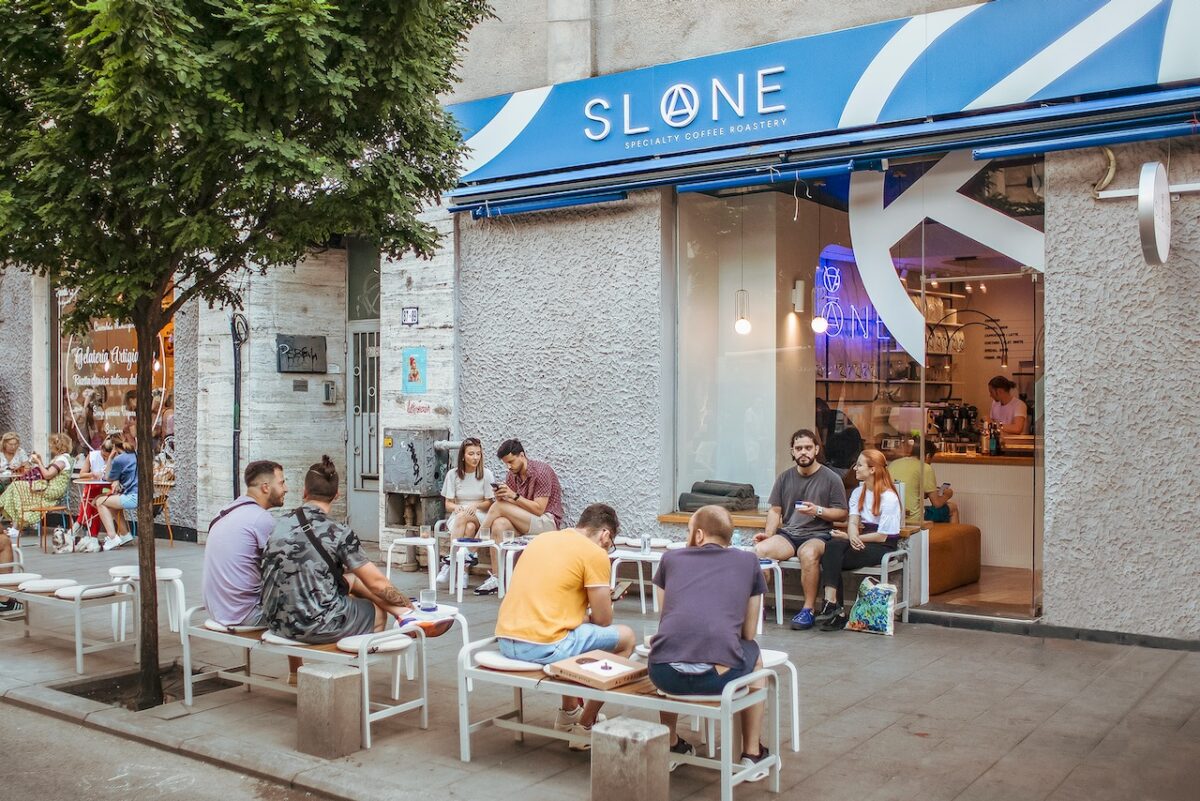
Sloane Coffee stands on a street in the center of the Romanian capital Bucharest. With many passers-by coming and going, this boulevard is also a popular walking route among the locals. Located along this bustling street, the roastery and coffee shop attracts local residents and overseas tourists alike.
In this city of around two million people, there are estimated to be around one hundred specialty coffee shops. Competition is fierce. But for Teodora Pitis, who founded Sloane Coffee in 2016, that’s exactly what makes running her own shop all the more interesting. The first female Q-grader in Romania, Teodora sources green coffee and, as general manager, trains her staff.
For Teodora, who stepped into the world of specialty coffee in around 2014 after a career in public relations, her native Romania was a place with “many things to be done.” She says many of her friends in the coffee industry work abroad, like London and Berlin. What, then, ultimately prompted her to start a business in her home country? Through our interviews, Teodora walked us through her path to date, which, as we found out, was inextricably linked with Romania’s history.
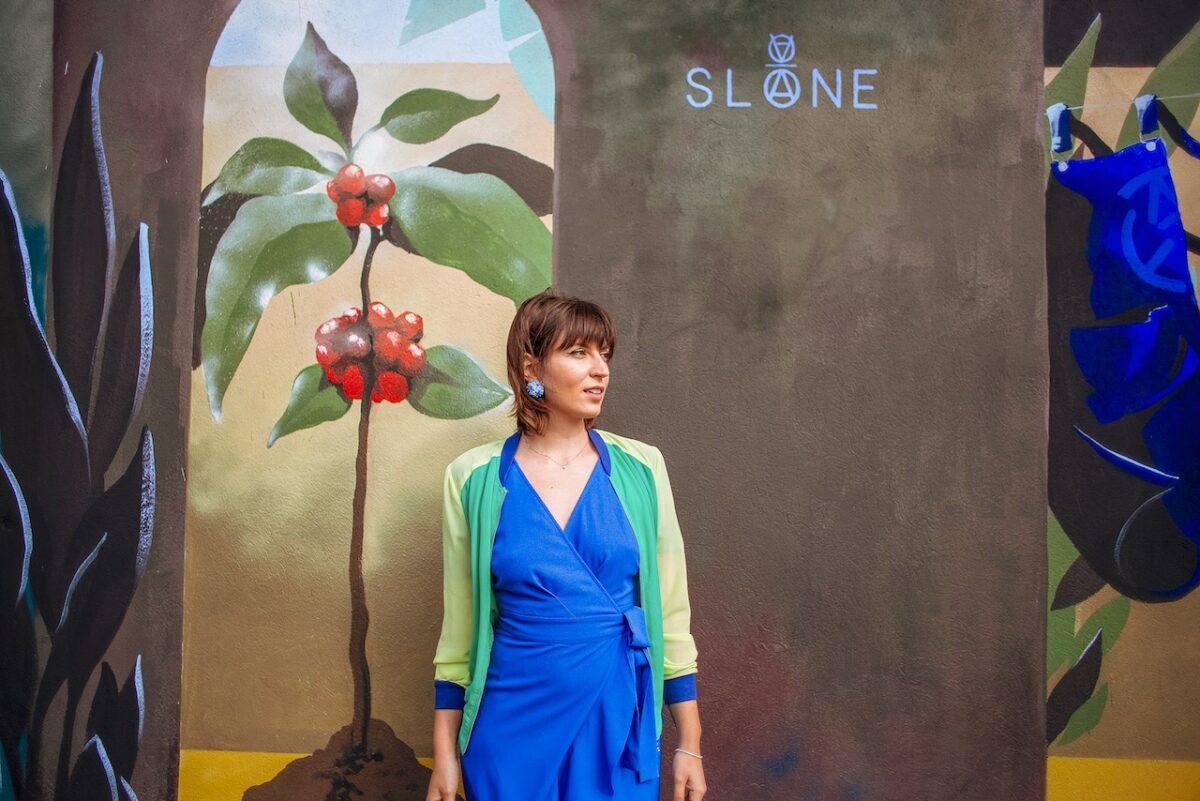
Fostering organic growth
In the UK, the word “sloaner” describes upper-class, sophisticated people. Sloane Coffee was named after the term. From the design of its space to packaging to staff uniform, everything about Sloane Coffee seems to befit its name. But the definition of a sloaner seems to be best personified by founder Teodora. Exuding an air of intellect and grace, and a certain disarming charm, she is an entrepreneur.
Sloane Coffee, originally kicked off with Teodora and a friend, has now expanded into 12 members. As the team has grown bigger, Teodora increasingly feels the need for management. Still, hiring someone with management experience from outside is not her intention. Instead, she plans to pick from long-serving employees who show an interest, and provide training if necessary to facilitate the transition.
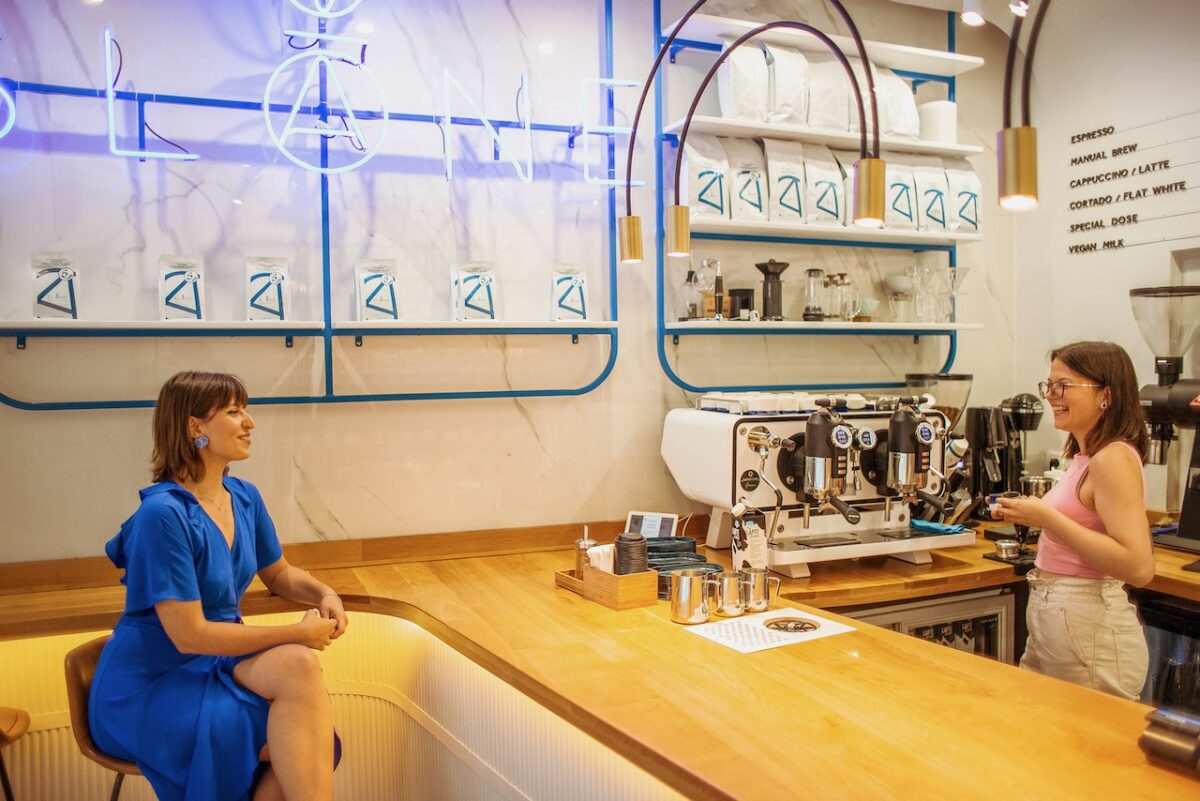
“Our social media manager is a case in point. She is now solely in charge of our social media. After she had worked with us as a barista for one year, she said she wanted to do the job. Six months later, she took over the role after I passed on my experience and knowledge.
As a team grows bigger, the biggest challenge and concern is whether everyone can continue to share the same vision. Keeping staff members motivated is the key to maintaining the quality of all experiences we offer, from the relationships with customers and business partners to the products we sell. A business can’t grow without cultivating employees and growing together with them.”
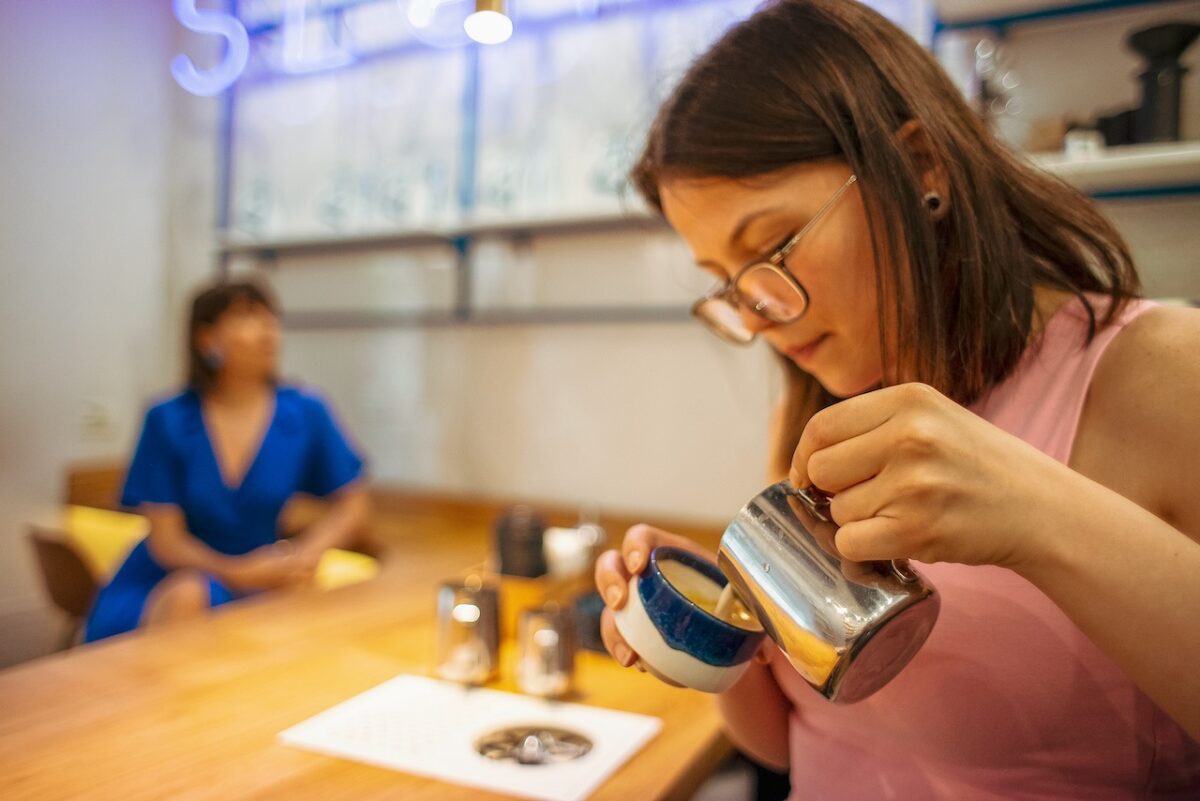
As part of staff training, Teodora takes the whole team with her when she travels to the World of Coffee in Milan and other international coffee events in nearby countries. That’s because she wants her staff to experience the global market firsthand and interact with people working overseas.
“Looking back, taking part in such events was very important for my current commitment to this job. In Romania, barista wasn’t seen as a real job for a long time. It was regarded as a job for students or someone without much expertise in other fields.”

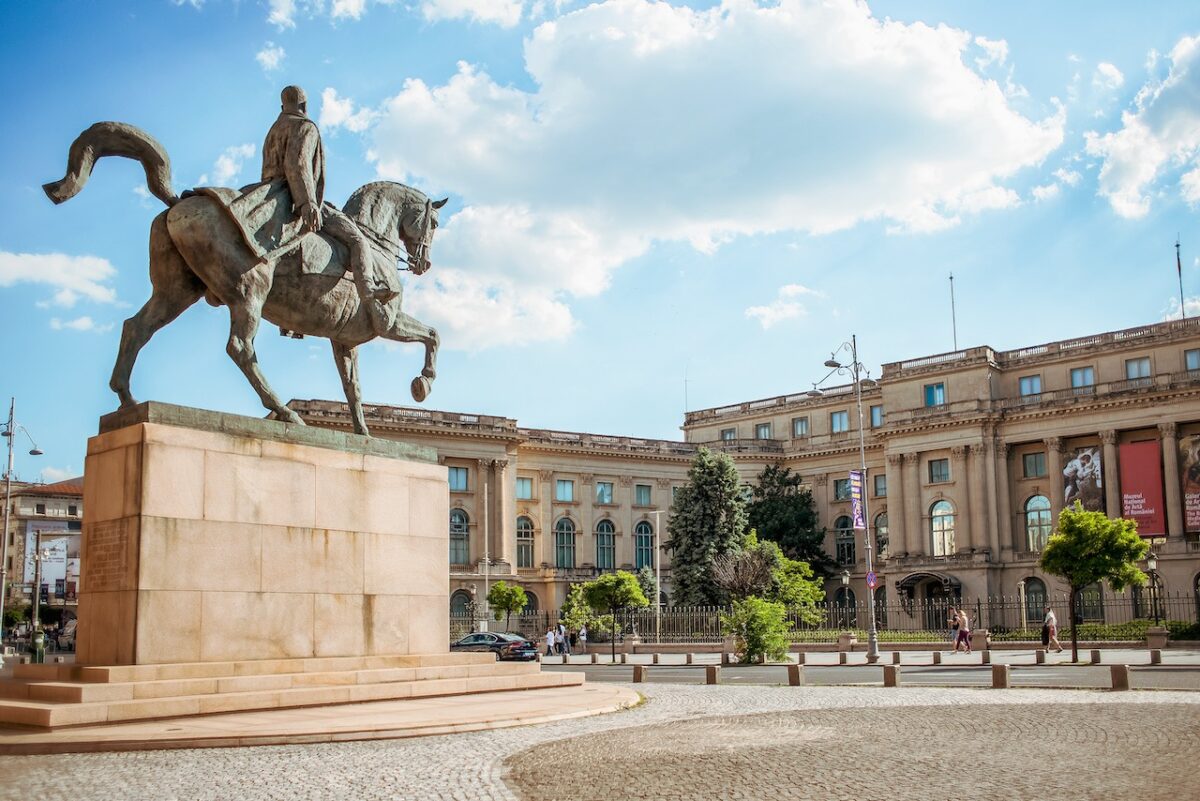
Yearning to travel across borders
Dubbed “Europe’s last medieval landscape,” Romania has a unique history. The country came under Soviet occupation in 1945 after siding with Germany in World War 2. The single-party rule by the Communists lasted all the way until 1989, when a revolution toppled the Socialist Republic of Romania.
“Before 1989, people weren’t allowed to travel outside Romania unless they had a very strong reason. Even American songs were translated into Romanian when they were played on TV. Especially in the last 10 years of the regime, Romania severed trade with other countries, trying to be self-reliant. In other words, Romania used to be a closed country.
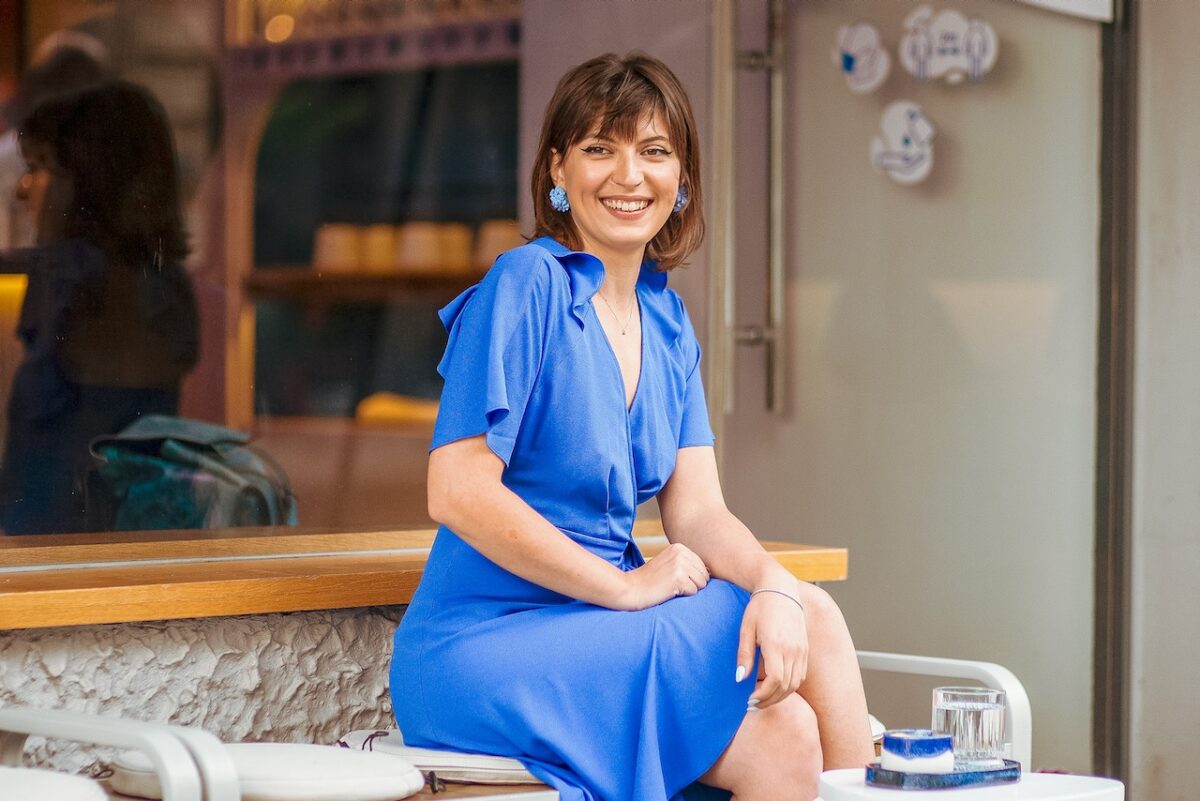
Teodora, who was born in 1991, didn’t witness the period of self-isolation firsthand. But in a society where she grew up, the remnants of the Communist-era remained vividly present nonetheless, ruffling her childhood sensibilities.
“I wasn’t necessarily aware at the time. But I think I was hungry to connect with the world outside of Romania. And people in my generation probably shared the same sense.”
She went on to study communication science in university. This, too, came from her yearning for interactions across different cultures.
“For instance, you need to know others’ culture if you want to avoid offending them. Or, if you want to understand an event that happened 100 years ago, you need to know the social context at that time. It was my main concern to figure out how people from different backgrounds can reach a common understanding and share the same feelings.”

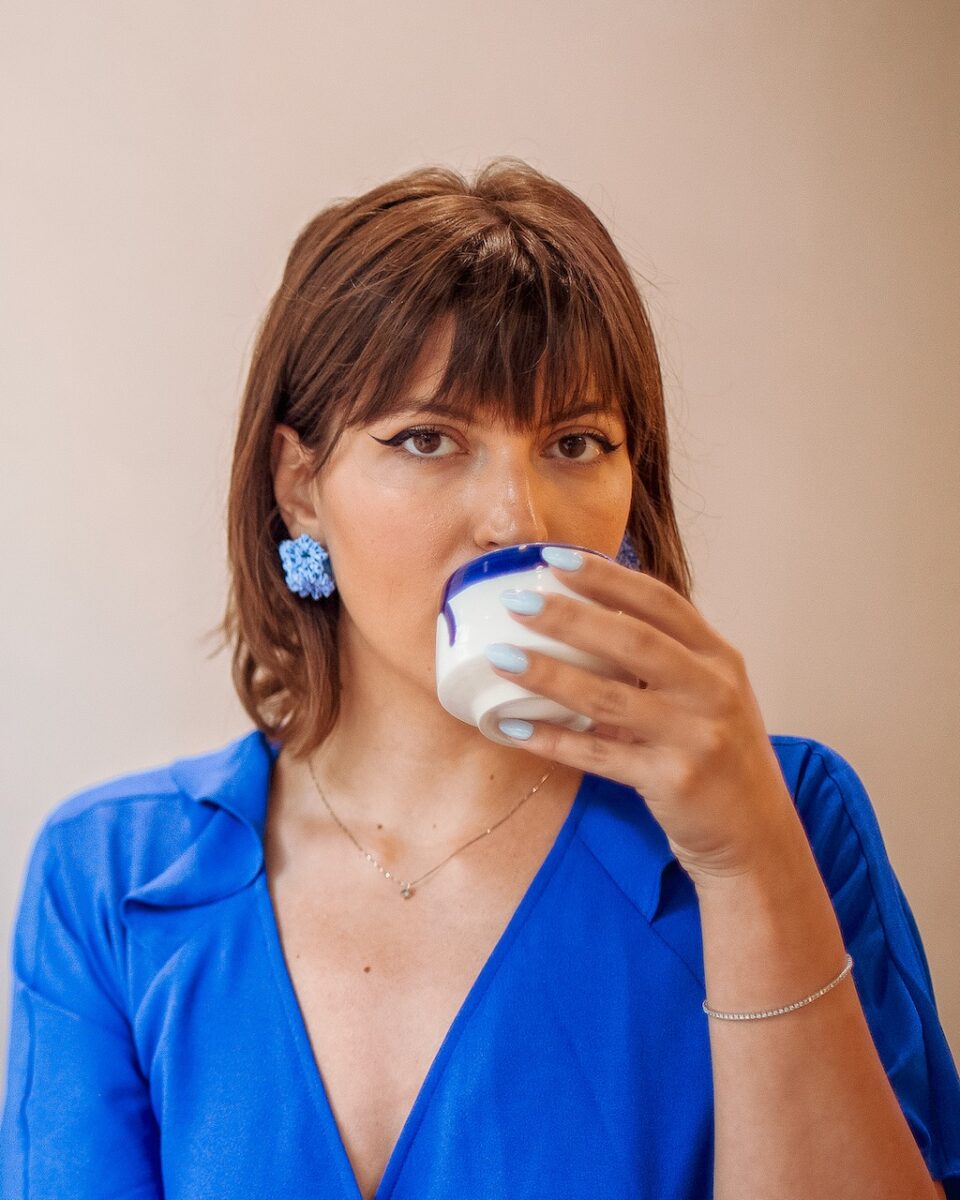
Romania’s hidden potential
After graduating from university, Teodora started her career in public relations. But facing a lack of connections with the outside world, and reluctance among her peers to help competitors and share knowledge and know-how, she started to itch for something more.
The London Coffee Festival proved to be a defining watershed moment. At the event, Teodora saw passionate young baristas, owners of coffee chains and equipment manufacturers, a producer who took over a farm from his father, a globe-trotting green coffee trader. People from diverse backgrounds but with the same ambitions shared a table for genuine, passionate talks. Witnessing a world she’d dreamed of since her childhood, a sense of conviction sprouted within. “I decided either I would do this, or nothing else,” she recounts.
Teodora had no hesitation to dive into a sector far removed from her career up until that point. With a barista friend, she started out by opening a pop-up cafe in a large restaurant. After running a coffee shop, she founded Sloane Coffee.
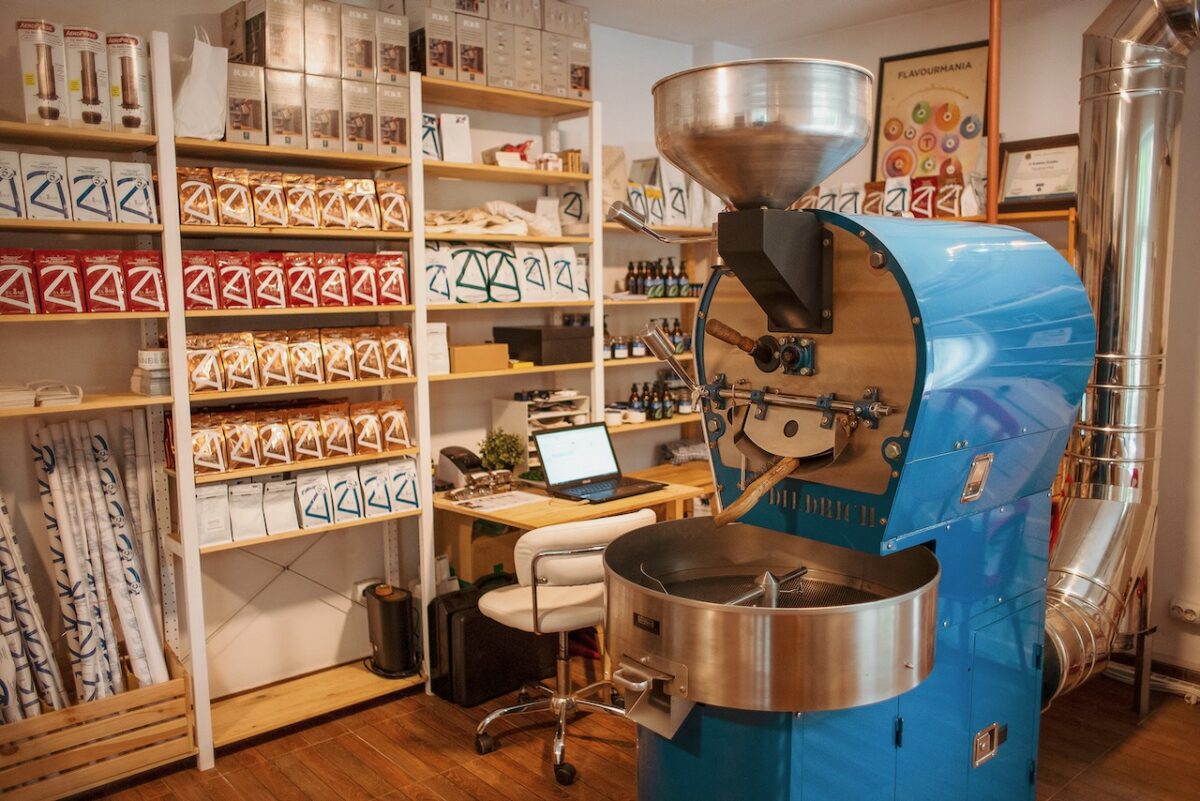
While many of her coffee friends were working in London, Berlin, the Netherlands, Australia and other advanced specialty coffee markets, she decided to open a roastery in Romania, for a reason.
“I felt there was a big potential for growth here. Since Romania was long closed to the outside, there was no established coffee chain or coffee culture. I saw a chance. I felt excited to be creative, to be able to paint on a blank canvas. In fact, specialty coffee has become accepted in Romania without friction.”
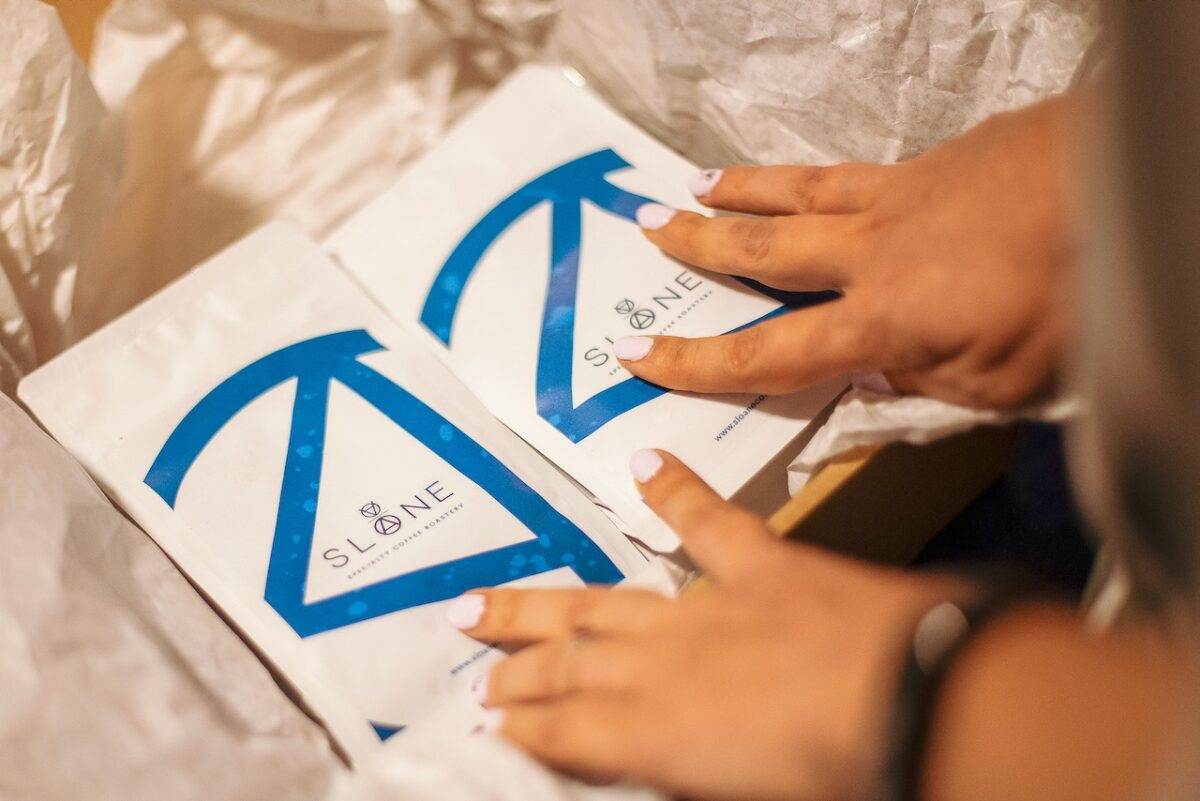
Since its foundation, Sloane Coffee has focused not just on the domestic market but on people across the globe, including in all of the EU. Thanks to its global outreach, the company has enjoyed steady growth, now serving clients across over 20 countries. Today, Teodora plans to open a roastery in Saudi Arabia by the end of 2023. That’s because she has Middle Eastern clients who buy all their coffee from Sloane Coffee.
“My long-term dream is to expand into Asia. I think Asia and the Middle East are two of the hottest markets with potential for further growth. I chose to start a roastery because I wanted to connect with people around the world, including green coffee traders and producers.”

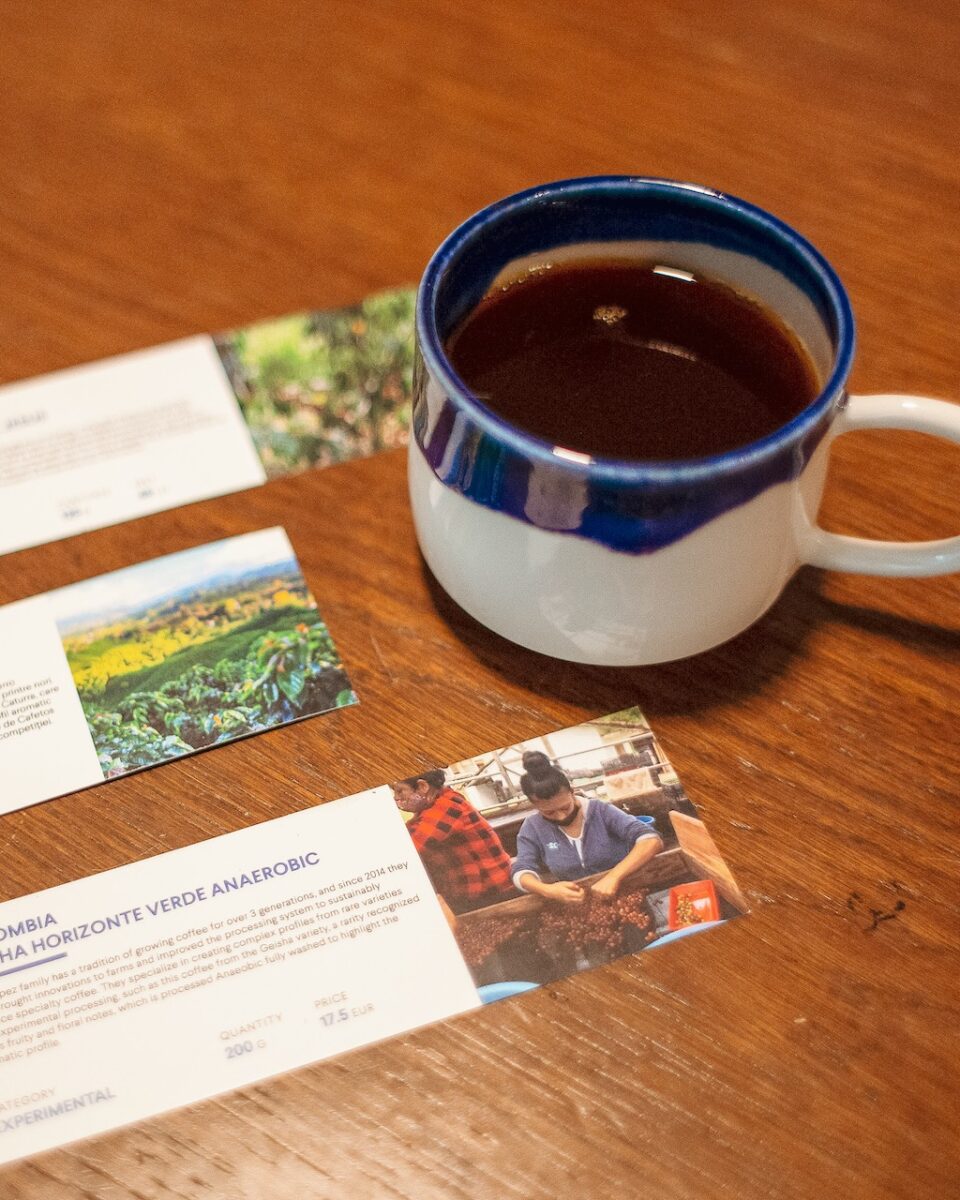
Fascinated by power of coffee to unite
With her sights always set on the global market, Teodora has committed herself to direct trade with producers, too. As someone responsible for sourcing green coffee, she has made it a point to visit origins and build relationships with as many producers as possible.
“It’s very hard to understand coffee unless you see it. Even if we don’t get to meet producers in origins, then we meet them in different parts of the world and try to understand as much as we can about their struggle there.
When I met producers in Guatemala, they were visibly exhausted because they’d had to wake up every couple of hours to attend the coffees for almost a month to make black honey lots. It’s completely different from having coffee dried under the sun for a month.
I have countless stories like this. But the most shocking was a reality facing small-scale producers in Burundi. For every coffee tree, they can only get cherries that would amount to 240-250 grams of roasted coffee, about the size of a small pouch. Even if they collect all the coffees from this farm with around 250 trees, the total harvest is still less than what a single coffee shop uses. Obviously, circumstances vary between producing countries and producers. But in those small-holders’ cases, that was what they got for six to 12 months of the work they did.
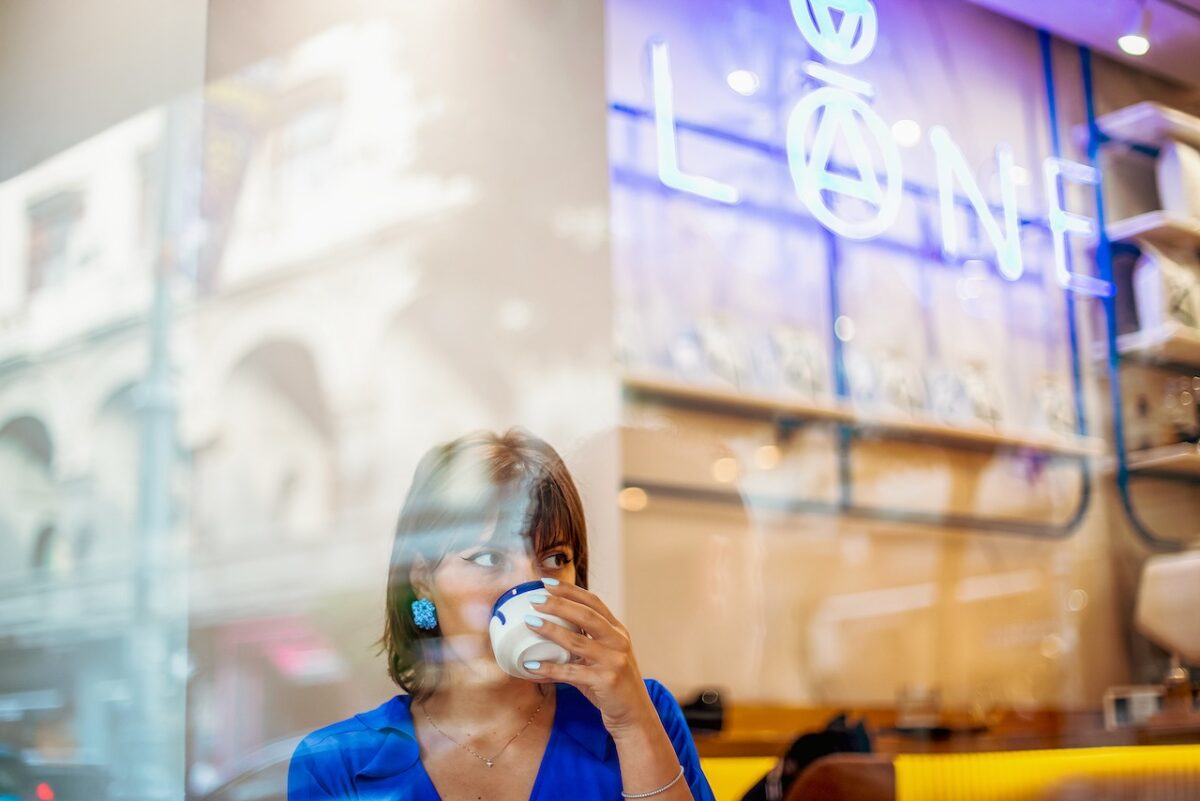
Things have gradually changed in the past three to four years. But in producing countries, almost all their coffees, especially extraordinary lots, are exported and never consumed domestically. Romanians and people in other European nations get to enjoy this amazing coffee, the fruit of the producers’ labor. Nevertheless, many people don’t understand the struggles of producers and think that coffee should be even cheaper. Some people even complain about silly things.
Part of our job is to explain to people about the whole journey of coffee, how much time and effort it takes to grow coffee and transport it across oceans. And it’s also our role to tell them coffee is not a commodity, but a luxury we are fortunate to enjoy. As roasters, we are responsible for changing people’s attitude toward coffee.
I like coffee, but I’m not obsessed with it, as if I would faint without it. I’ve become something of an advocate for farmers probably because I feel coffee can bring people together. Coffee has the power to transcend backgrounds, age and continents, connecting people from different countries and cultures to become a global family”

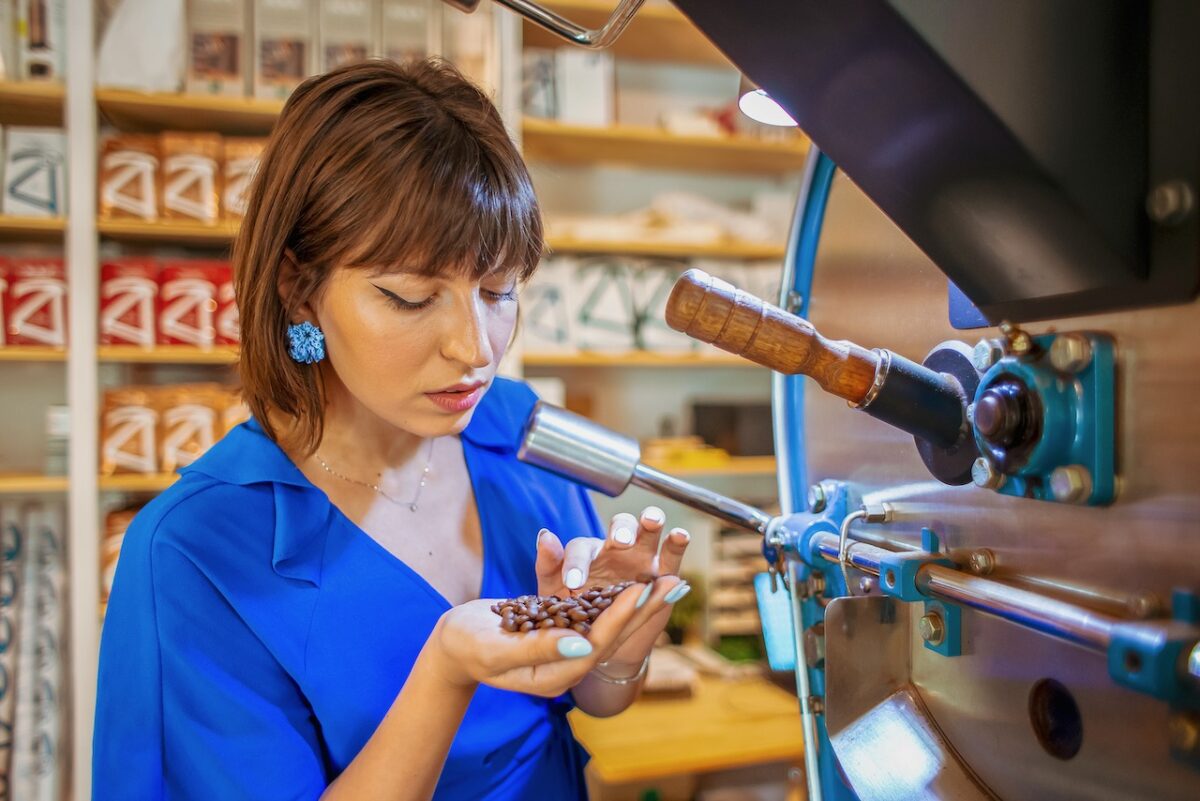
From closed country to open one
Everyone is more or less influenced by the country, society, culture or the times they grew up in. Without perceiving these influences objectively and understanding one’s own difference from others, it’s difficult to establish an identity.
“At least for some 20 years since I was born, until around 2010, everyone was eager to go outside Romania in pursuit of a better world. For Romanians, everything abroad looked great when many things at home did not function well.
But that’s changed in the past 10 years. As many Romanians traveled to other countries and saw for themselves what those countries actually looked like, they found out that any country has its own problems, and that the places they longed for and the people living there were no different from themselves. They realized that it is the will to do things correctly and bring change that makes a difference.”
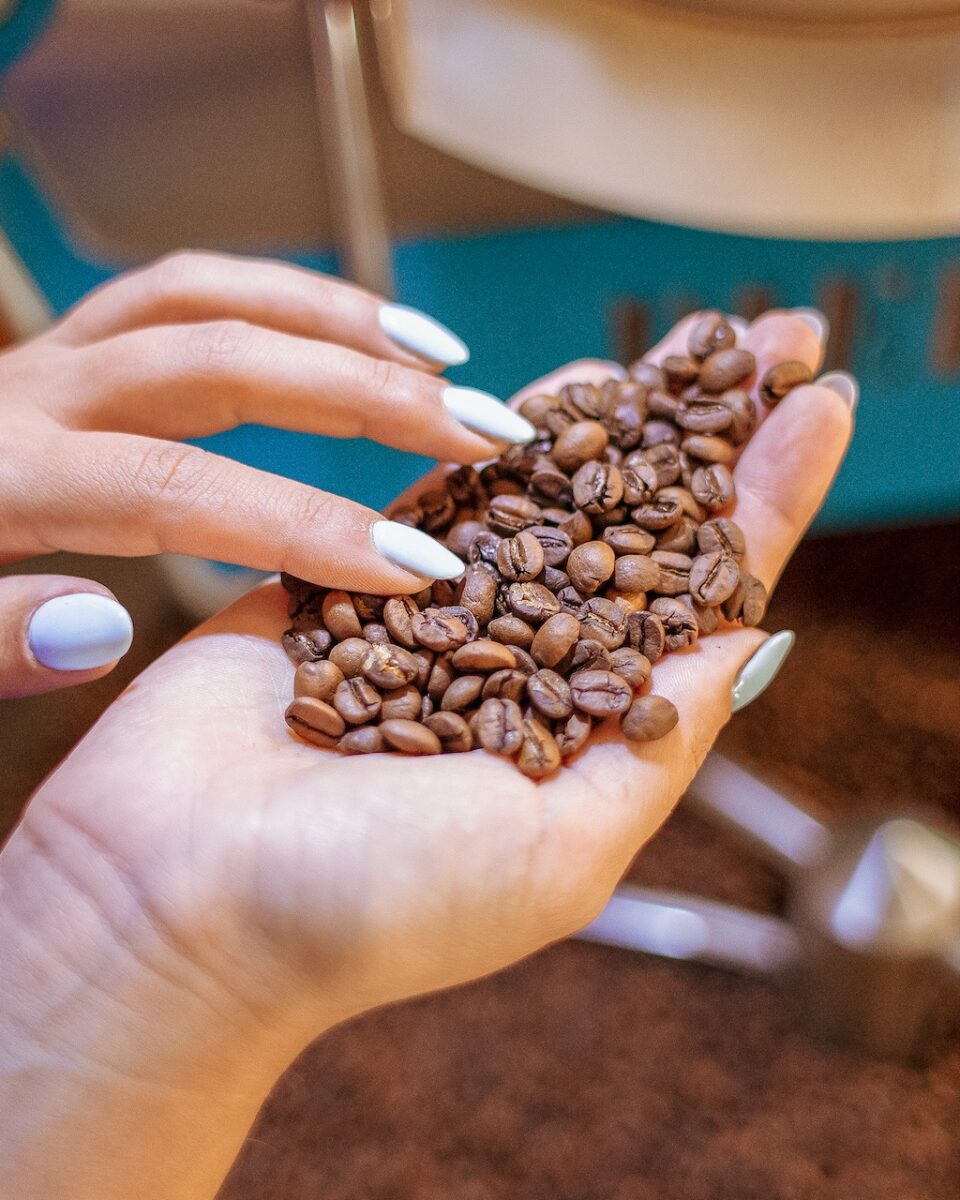
This shift can also be seen in Romania’s specialty coffee scene, too, as people are increasingly turning their gaze inward and rediscovering the values they can bring. In fact, many coffee shops have started to buy roasted beans from local roasters, instead of from abroad.
“I’ve been saying this for a while, but Romania’s specialty coffee scene is really interesting. Since it’s highly competitive, quite a few small roasters go after high-end and unique coffees with a focus on quality, even if they have to cut their profit margin.
From a closed country to an open one. Knowing oneself is an indispensable passage toward maturity, whether for an individual or for a nation. Sloane Coffee provides its customers a gateway into a world beyond theirs, instilling a sense of national pride in people’s hearts, as it cultivates a unique coffee culture they can call their own.
Originally written in Japanese by Tatsuya Nakamichi
Photos by Victor Arsene
MY FAVORITE COFFEE
There are actually two. One is a unique coffee I drink by myself in my personal time, thinking how fortunate I am to be able to drink it. The other is a coffee I drink with close friends in my shop, just enjoying our time together.

Buy coffee beans from this roaster
Sloane Coffee
- [Open]
- 8:00〜23:00(Mon:〜19:00, Fri,Sat:〜24:00)